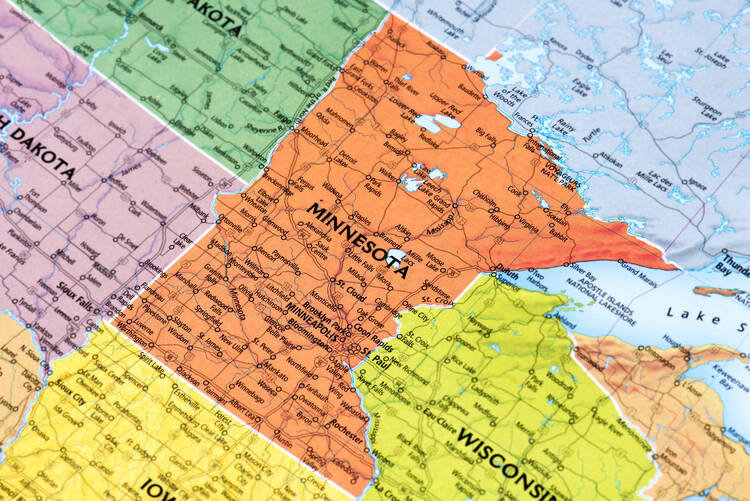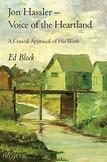Review: Jon Hassler’s fiction takes us to the midwest and back again
Most writers begin with material specific to their environments and familiar cultures, but the best writers transcend their regions of origin. But faithfully representing a region—from the landscape to the people—should not preclude the writer from being widely read. Jon Hassler, a 20th-century Catholic writer from Minnesota, is the subject of a new book, Jon Hassler—Voice of the Heartland. The author of this intellectual biography, Ed Block, makes a convincing case for Hassler’s ability to transcend the Midwestern setting of the majority of his 12 novels (with brief cameos by Ireland and Rome).
“Hassler gives readers the everyday ‘feel’ of life in the rural and small-town Midwest,” Block writes. His themes of “community and the loss of community, faith and the loss of faith, depression, loneliness, and the need for love” are broader than the characters who journey through the pages of these books. Block’s Voice of the Heartland is the first book-length study of Hassler’s life and work.
No doubt Ed Block’s Jon Hassler—Voice of the Heartland will provide a useful guide for Hassler’s greatest fans, but it will also convince those unfamiliar with Hassler of his universality and his timeless appeal.
Voice of the Heartland gives readers a roadmap for reading the biography side by side with Hassler’s own work. Block instructs readers to read the first two chapters, which provide a biographical study and critical appraisal of Hassler’s development as a writer. “Then, if you have not already done so,” he instructs, “read one, two, or more of the novels, novellas, or collections of short stories. Come back to the book and read, in any order, the individual chapter or chapters devoted to the work that you just read.” This guide allows those readers unfamiliar with Hassler’s work to educate themselves at the source, returning to Block’s book as supplement and guidance.
“Jon Hassler celebrates the (un)common woman and man,” according to Block. He champions “America’s vast and often struggling middle class” with his rigorous moral vision—the burnt-out high school teacher of Staggerford, the family store owners in Grand Opening, the out-of-work child of an alcoholic house painter in Jemmy. The characters are not sensationalized, Block maintains, nor are they marginal or strange; instead Hassler’s carefully rendered and detailed writing “reverences all it touches.”
No doubt Ed Block’s Jon Hassler—Voice of the Heartland will provide a useful and celebratory guide for Hassler’s greatest fans, but it will also convince those unfamiliar with Hassler of his universality and his timeless appeal beyond the rural plains and small towns of central Minnesota.
This article also appeared in print, under the headline “Beyond the rural plains,” in the September 2, 2019, issue.









